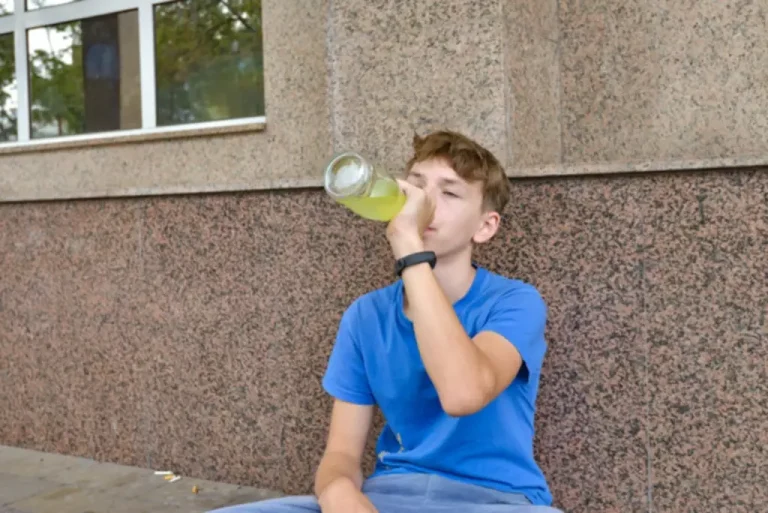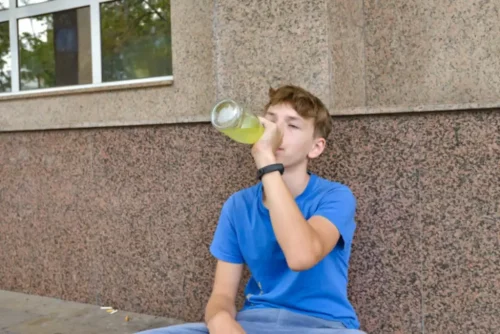
This can make a drink very calorific – for example, a pint of lager can contain the same amount of calories as a slice of pizza, or a large glass of wine the same an ice cream sundae. The effect of alcohol on your immune system and the way your circulatory system works affect the skin too. Drinking alcohol can cause or worsen psoriasis3 (a condition that causes flaky skin) and rosacea4 (redness or flushing on the face). A number of experts have recommended revision of the guidelines toward lower amounts, as more studies have linked even moderate alcohol consumption to health risks.
- According to Dr. Kohli, the choice of tipple also makes a difference when it comes to its impact on skin.
- Alcohol strips away natural oils and dehydrates the skin, causing dryness, flakiness, and roughness.
- She has more than seven years journalism experience and has previously written for Red and Good Hoousekeeping.
- Incorporate foods rich in vitamins, minerals, and antioxidants into your diet, such as fruits, vegetables, whole grains, and lean proteins.
- If you’ve noticed changes in your skin related to alcohol consumption, chronic skin conditions, sun exposure, age, or any other concerns, the U.S.
Oar Health Reviews: Alcohol Moderation Success Stories
- “Rosacea is a condition that is triggered by alcohol consumption – especially red wine – as it’s an inflammatory condition, so when we drink alcohol we’re increasing chances of a flare-up,” she says.
- Dr Liakas explains, “Once one decides to stop drinking or cut down on the consumption of alcohol in general, it can have great positive impacts on your skin. The skin will look more hydrated, plumper and brighter.”
- According to Dr. Samolitis, clear liquors like vodka and tequila have the least amount of sugar and fewest added ingredients, so those might be the safest bets for those who don’t want to skip out on good times.
- In fact, dark spirits generally make for the worst hangovers and are the worst culprits for bad skin.
- If a person wishes to continue using alcohol frequently, basic treatments such as over-the-counter moisturizing creams may help relieve some of the symptoms of skin conditions, such as dry skin.
- Your source for health, wellness, innovation and discovery news from the experts at Ohio State.
As mentioned above by Dr. Kohli, every glass of alcohol reduces vitamin A, which is a crucial nutrient for skin renewal and collagen production. It can also interfere with the absorption of other essential nutrients like vitamins C and E. Deficiency in these vitamins can lead to dull, uneven skin tone and slower skin regeneration. Alcohol poses a high skin risk to those with conditions like acne, eczema, or psoriasis. Drinking heavily can worsen the symptoms for each, causing flare-ups due to inflammation.

Get all the latest in wellness, trends, food, fitness, beauty, and more delivered right to your inbox.

Although the classic ‘drinker’s nose’ (rhinophyma) was thought to be related to excess alcohol consumption, it has never been proven. In a case-control study of 175 people with rosacea and 145 people with normal skin, there was no significant difference in alcohol consumption between the two groups. All of these skin conditions may occur without any history of alcohol abuse. However, some effects of chronic, excessive alcohol use on the skin may not disappear so quickly; for example, deep lines and wrinkles caused by chronic dehydration might soften, but are likely to remain. Ethanol, a by-product of alcohol metabolization, has been reported to vasodilate or expand blood vessels. With chronic alcohol consumption, these blood vessels become permanently dilated, leading to visible spider veins.
- Nummular or discoid dermatitis occurs more frequently in alcohol abusers, particularly in those with abnormal liver function tests.
- Dehydration can cause your skin to become dry, dull, and less elastic.
- “As alcohol is a diuretic, meaning that it actively draws water away from the body, significantly lowering the body’s water level,” she goes on to explain.
- The experience completely shifted her outlook on skincare and inspired the creation of The Outset, the skincare brand she founded as a reflection of her own story and hard-earned philosophy.
How to reduce the effects of alcohol on your skin

Urticaria (hives) may occur within minutes to hours of drinking alcohol and is sometimes due to allergic reaction. Flushing and overheating after drinking alcohol may also indicate cholinergic urticaria. This is a physical type of urticaria is brought on my heat, exercise, or stress.
How to reduce the effects of alcohol on your appearance

“Wrinkles, pores and acne can be improved if you decide to put time and effort into your daily lifestyle and skincare regime,” Dr Liakas says. For men, heavy drinking is defined as four drinks a day or more than drug addiction 14 drinks a week. For women, it’s defined as three drinks a day or more than seven drinks a week (1). Moderate drinking is defined as 14 or fewer drinks per week for men, and seven or fewer drinks per week for women.

- Besides, non-alcoholic drink options have never been better – I stock up on Saicho and Fortnum & Mason’s Sparkling Tea every December – driven by an increasingly sober-curious society.
- Eliminating alcohol from a person’s diet and lifestyle should help the skin to clear up.
- She also says that French beauty often takes a less-is-more approach—one that aligns with many dermatologists’ philosophies.
We know it’s tempting to climb straight into bed after a late night, but your skin will thank you for giving it the attention it needs. “Including supplements into your diet can encourage regeneration of cells which is often blocked if excessive drinking takes place,” says Dr Liakas. Although beer isn’t ideal for the skin, according to Dr Ana “Beer is filling, so the amount consumed tends to be limited does alcohol ruin your skin and it has some antioxidant benefits.” Dark spirits, such as whiskey and brandy, contain congeners – chemicals such as tannins and methanol which are created in the fermentation process – and these make hangovers worse.
